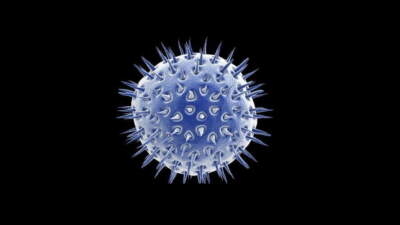Obesity, a global health crisis affecting millions, has long been a challenging condition to treat. However, recent advancements in gene therapy offer a glimmer of hope. Gene therapy, a revolutionary technique that uses genes to treat or prevent diseases, is now being explored as a potential solution for obesity.
Rimegepant: The Future of Migraine Treatment
Migraines, a common health issue that affects millions of people worldwide, are about to meet a formidable opponent. The National Institute for Health and Care Excellence (NICE) in the UK has recommended a new drug, Rimegepant, for preventing migraines. This groundbreaking treatment, also known as Vydura, is manufactured by Pfizer and is taken as a wafer that dissolves under the tongue.
Memory Magic: The Power of Flavanols & Multivitamins
The significance of diet and nutrition in maintaining optimal health and preventing diseases is a universally acknowledged fact. The food we consume not only fuels our bodies but also influences our mental health, including memory and cognitive function. Recent research has shed light on the role of certain dietary components, such as flavanols and multivitamins, in boosting memory and cognitive performance.
Unveiling Long COVID: The Unseen Global Health Crisis
The COVID-19 pandemic has left an indelible mark on global health, with its impact extending far beyond the acute phase of the disease. A recent Swiss study published in the British Medical Journal (BMJ) has shed light on the long-term effects of COVID-19 in unvaccinated individuals, revealing a worrying trend.
Harnessing the Power of Exercise for Mental Wellbeing and Work Performance
In today’s fast-paced world, maintaining mental wellbeing and work performance is a challenge for many. Amidst the hustle and bustle, one often overlooked solution lies in a simple, universally accessible activity – exercise. Numerous studies have highlighted the profound impact of physical activity on mental health and work performance.
The Rising Threat of Human Metapneumovirus: What You Need to Know
In the realm of public health, awareness is a powerful tool. As we navigate through the complexities of the global health landscape, a new threat has emerged, catching many by surprise. This threat is the Human Metapneumovirus (HMPV), a relatively unknown virus that has seen a significant rise in cases recently.
Gray Hair Mystery: Melanocyte Stem Cells and the Aging Process
Scientists have discovered a potential reason behind hair graying by studying hair follicles in mice, which may eventually lead to ways to prevent or reverse the process. Hair turns gray due to a lack of specialized pigment-producing cells called melanocytes. However, it remains unclear why this shortage occurs and how to prevent it.
Aston University’s Journey to Empower Gender Equality in Indian Institutions
Aston University, a Birmingham-based higher education institution, has been selected by the British Council to help Indian universities enhance gender equality. To achieve this, the university will aid in the development of gender equality frameworks tailored to each institution.
Spillover Effect: Revised Mammography Guidelines’ Unintended Impact on Breast Cancer Screening
In 2009, the U.S. Preventive Services Task Force revised its mammography screening guidelines, recommending that routine breast cancer screening should begin at age 50 instead of age 40. They suggested an individualized approach for women between the ages of 40 and 49 and cited insufficient evidence for screening women aged 75 and older.
Unveiling the Best Approach: A Study on Nail Bed Injury Treatment Options in Children
Nail bed injuries in children are a widespread issue, with over 10,000 operations performed each year in the UK alone. Often caused by a child’s fingertip being crushed in a closing door, these injuries were the focus of a 2017 information campaign by BAPRAS (British Association of Plastic Reconstructive and Aesthetic Surgeons) to raise awareness and prevent accidents.










